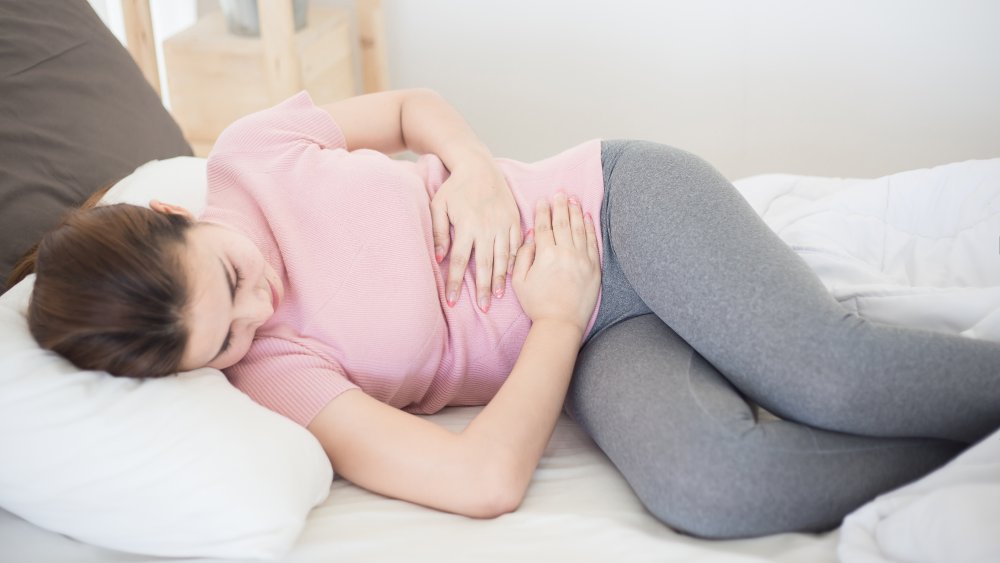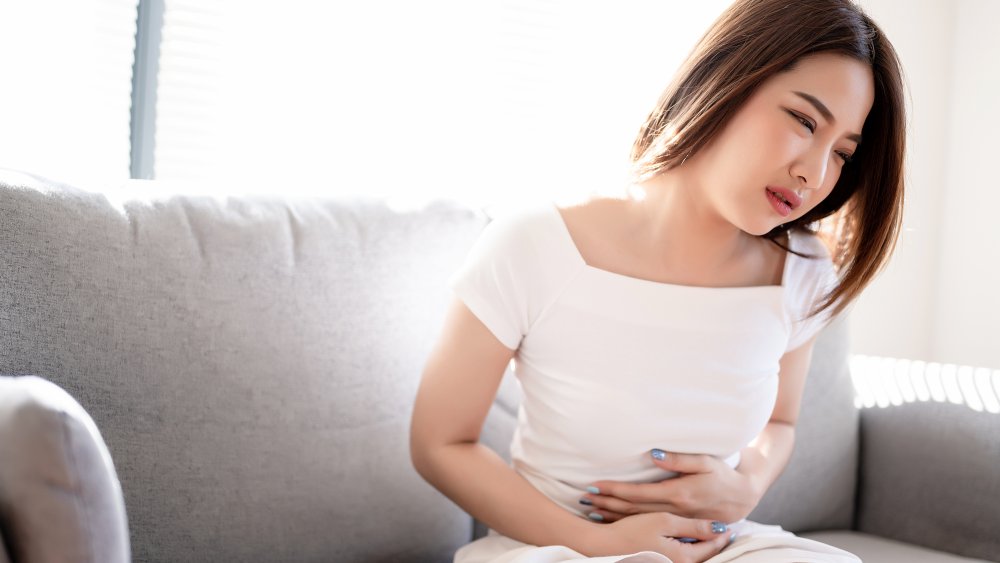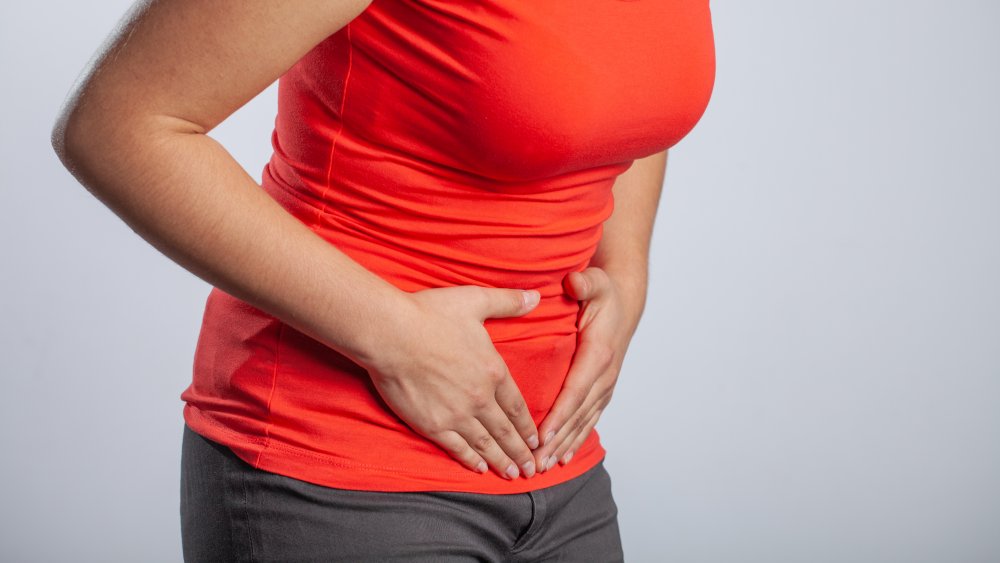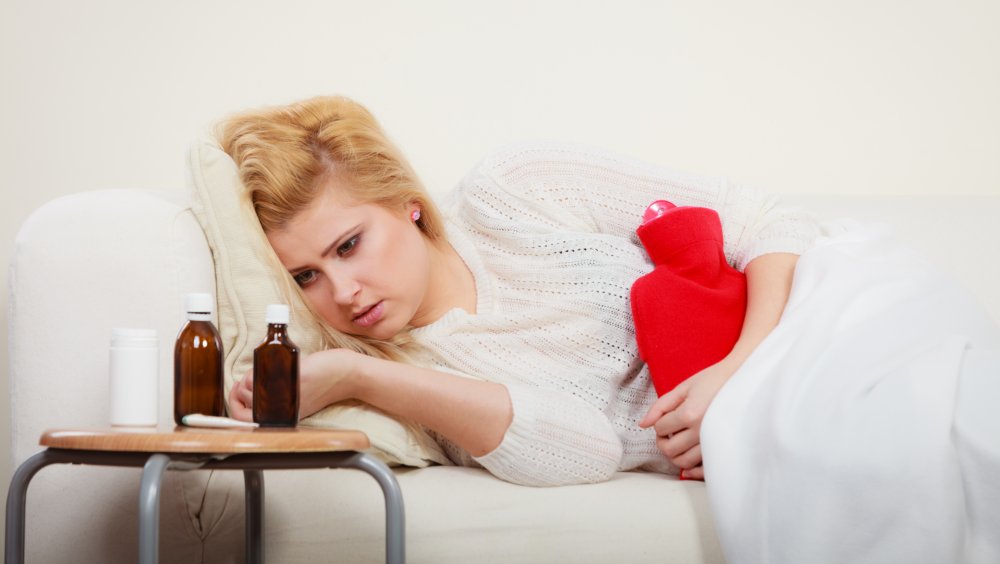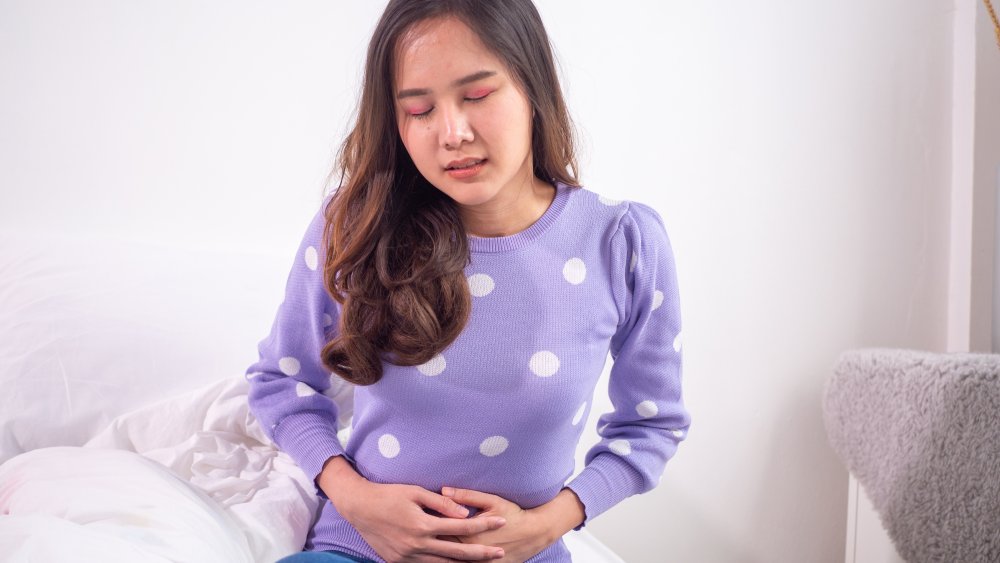The Untold Truth Of Period Cramps
Period cramps are just the worst... ask any female on the planet who's reached her teens and she will confirm this fact. Even women whose cramping days are long behind them still remember how much their periods used to hurt. How much do they hurt, you may ask, if you're not a woman, or have yet to hit puberty, or have a mercifully short memory? Well, John Guillebaud, professor of reproductive health at University College London, told Quartz that some of his patients have told him the pain they feel from period cramps is "almost as bad as having a heart attack."
While period pain does have a long, fancy medical name — primary dysmenorrhea — the sad truth is that many doctors (male ones, hmm) feel that OTC meds such as ibuprofen should be enough to treat this "minor discomfort." Ha. Not. Even.
What causes period cramps?
Each menstrual cycle, if your egg is not fertilized, your uterus will contract to shed its lining. It receives the message to start shedding from body chemicals called prostaglandins, but the muscle contractions they trigger can lead to cramping that Medical News Today likens to labor pains. Higher levels of prostaglandins in the body can lead to more severe cramping, but cramps can also be triggered by other underlying medical conditions including endometriosis, pelvic inflammatory disease, or uterine fibroids (none of which, needless to say, can be treated with ibuprofen alone).
Who is at risk of experiencing period cramps?
Well, women, duh. Specifically, though, young women. And if you had your first period at a very early age — like, 11 or under — you're also more likely to suffer painful periods. Periods involving heavy bleeding also tend to involve heavy doses of pain, and women who have never given birth are also more likely to endure monthly agony. (Women who have had kids, however, are biting their lips trying to refrain from saying something along the lines of, "If you think your periods are painful, just you wait for what's in store in the delivery room.")
How can you prevent period cramps?
Certain lifestyle modifications can lessen the possibility of your experiencing menstrual cramping, or at least lessen the pain. These include getting 30 minutes of exercise at least three times a week — according to the Journal of Education and Health Promotion (via NCBI), a study involving 70 women with primary dysmenorrhea found that, after eight weeks of regular exercise, the pain they experienced during their periods was significantly reduced.
Certain dietary modifications may also be beneficial, such as increasing the amount of fruits and vegetables you eat and cutting back on fat, salt, sugar, caffeine, and alcohol. Reducing stress levels will also help — try breathing exercises, yoga, or meditation, but do so on a regular basis, since waiting until the cramping hits may be difficult and thus less effective.
How can you treat period cramps?
While nonsteroidal anti-inflammatory drugs (NSAIDs) like ibuprofen and naproxen can help to reduce some of the pain, they may not be sufficient on their own. In cases where menstrual cramping is very severe, your doctor may prescribe birth control pills in order to prevent ovulation. Certain other types of birth control, such as hormonal IUDs, patches, vaginal rings, and injections may also help to decrease cramping.
Nonmedical options that won't exactly cure but can reduce or at least help you manage the pain include warm baths, heating pads, and chamomile tea. Herbal supplements including lavender, fennel, and ginger may also have some benefit.
How long will period cramping go on?
Forever, or so it seems, when you're actually doubled up in pain. Each episode, however, tends to last maybe two to three days if severe, peaking within 24 hours of the onset of your actual period and then tapering off for another day or so after that, according to Healthline.
If you want to know just how much of your life is going to be ruined by period cramps, good news! While Medical News Today indicated that women under 20 tended to suffer the most from period pain, medical journal Electronic Physician (via NCBI) published a study indicating that primary dysmenorrhea starts to taper off significantly after age 24. And, of course, no more period cramps once the periods themselves go away, which is what happens at menopause, although the University of British Columbia's Centre for Menstrual Cycle and Ovulation Research (CEMCOR) notes that period pain may come back for one last hurrah in the lead-up stretch known as perimenopause.
